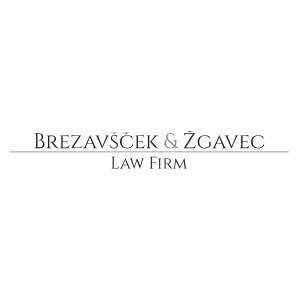Best Sanctions & Export Controls Lawyers in Slovenia
Share your needs with us, get contacted by law firms.
Free. Takes 2 min.
Or refine your search by selecting a city:
List of the best lawyers in Slovenia
About Sanctions & Export Controls Law in Slovenia
Sanctions and export controls are legal mechanisms that regulate the movement of certain goods, technologies, and services across borders for reasons of national security, compliance with international obligations, or to achieve foreign policy objectives. In Slovenia, these laws are primarily shaped by the country’s membership in the European Union and the United Nations, as well as by its own national legislation. These rules can affect individuals, companies, and organizations involved in international trade, financial transactions, and the supply of sensitive double-use items that might be used for both civilian and military purposes.
Why You May Need a Lawyer
Dealing with sanctions and export controls can quickly become complex. You may need a lawyer if you:
- Plan to export or import goods, software, or technology with potential military or dual-use applications
- Are unsure if your business transactions are allowed with entities or countries subject to international sanctions
- Are approached by foreign partners whose countries are subject to EU, UN, or national sanctions
- Have been accused of breaching sanctions or export control laws
- Need to navigate license applications for restricted exports
- Are involved in mergers, acquisitions, or investments that may trigger sanction or export restrictions
- Require internal compliance programs for your company
Legal assistance can help you avoid costly mistakes, penalties, or criminal charges and will ensure you act according to both Slovenian and international regulations.
Local Laws Overview
Sanctions and export controls in Slovenia are enforced through a combination of national and EU regulations. Key points include:
- Slovenia, as an EU member, implements all sanctions and restrictive measures adopted by the European Union. This includes restrictions on trade, financial transactions, and services affecting individuals, companies, and entities from certain countries or sectors.
- The Act on Restrictive Measures Introduced or Implemented in the Republic of Slovenia governs national-level measures and enforces EU and UN sanctions.
- Export controls are primarily regulated by the Act on the Control of Exports of Dual-Use Goods, which outlines how businesses must secure licenses and approvals for exporting sensitive goods, software, and technology.
- Slovenia’s Ministry of Economic Development and Technology is the main authority for export controls, while the Ministry of Foreign Affairs handles many sanctions-related issues.
- Strict penalties apply for non-compliance, including heavy fines and potential criminal liability for individuals and companies found in breach of sanction or export control rules.
Frequently Asked Questions
What are dual-use goods and how are they regulated in Slovenia?
Dual-use goods are items, software, or technology that can be used for both civilian and military purposes. Exports of such goods from Slovenia require special licenses and are closely regulated under the national Act on the Control of Exports of Dual-Use Goods, alongside EU regulations.
Who is responsible for enforcing sanctions in Slovenia?
Sanctions are primarily enforced by the Ministry of Foreign Affairs, while export controls are overseen by the Ministry of Economic Development and Technology. Customs authorities and law enforcement also play a vital role in monitoring compliance at borders.
Do EU sanctions apply directly to Slovenian businesses?
Yes, as an EU member, all EU sanctions are directly applicable to Slovenian nationals and businesses, as well as anyone conducting business within Slovenia.
When do I need an export license?
You need an export license before exporting goods, software, or technology listed as restricted or controlled for dual-use or military use. A lawyer can help determine whether your transaction requires a license.
Can Slovenian companies trade with countries or entities subject to UN sanctions?
No, companies and individuals in Slovenia must comply with UN sanctions, which are implemented into Slovenian law. Trading with sanctioned countries or parties is prohibited unless specifically authorized.
What are the penalties for violating sanctions or export control laws?
Penalties for breaches can include substantial fines, confiscation of goods, revocation of export licenses, and, in serious cases, criminal charges against both individuals and companies.
How can companies ensure compliance with sanctions and export controls?
Companies should establish compliance programs, train staff, conduct due diligence on clients and partners, and consult legal experts regularly to ensure that all business activities adhere to relevant laws.
Do sanctions apply only to physical goods?
No, sanctions and export controls can also apply to services, intellectual property, financial transactions, and technology transfers, including electronic transmission of data or software.
Can individuals personally be held liable for sanctions violations in Slovenia?
Yes, individuals can be personally prosecuted for knowingly violating sanctions or export control regulations, especially if acting on behalf of a company that breaks the law.
Where can I check if a destination or entity is under sanctions?
You can consult official lists published by the Slovenian government, the EU, and the United Nations, or seek legal guidance if you are uncertain about the status of a potential business partner or country.
Additional Resources
If you need further information or official guidance, the following Slovenian bodies and resources may be useful:
- Ministry of Foreign Affairs - for details on international sanctions and restrictive measures
- Ministry of Economic Development and Technology - for export control permits and information on dual-use goods
- Customs Administration of the Republic of Slovenia - for customs procedures and border-related queries
- European Union Sanctions Map - accessible from official EU resources
- United Nations Security Council - for global sanction resolutions
- Chamber of Commerce and Industry of Slovenia - for business guidance and compliance workshops
Next Steps
If you believe you may be affected by sanctions or export control regulations in Slovenia, consider the following steps:
- Identify whether your goods, technology, or business partners may be subject to sanctions or export controls
- Gather all relevant documents and details about your intended transaction or partnership
- Consult with a qualified Slovenian lawyer who specializes in sanctions and export controls for a legal assessment
- Develop or update your business’s compliance program to minimize risks
- Stay informed of changes in Slovenian, EU, and international regulations that may impact your operations
Legal requirements in this field can shift quickly. Professional legal advice can prevent costly mistakes and ensure that your business remains compliant with all Slovenian and international regulations.
Lawzana helps you find the best lawyers and law firms in Slovenia through a curated and pre-screened list of qualified legal professionals. Our platform offers rankings and detailed profiles of attorneys and law firms, allowing you to compare based on practice areas, including Sanctions & Export Controls, experience, and client feedback.
Each profile includes a description of the firm's areas of practice, client reviews, team members and partners, year of establishment, spoken languages, office locations, contact information, social media presence, and any published articles or resources. Most firms on our platform speak English and are experienced in both local and international legal matters.
Get a quote from top-rated law firms in Slovenia — quickly, securely, and without unnecessary hassle.
Disclaimer:
The information provided on this page is for general informational purposes only and does not constitute legal advice. While we strive to ensure the accuracy and relevance of the content, legal information may change over time, and interpretations of the law can vary. You should always consult with a qualified legal professional for advice specific to your situation.
We disclaim all liability for actions taken or not taken based on the content of this page. If you believe any information is incorrect or outdated, please contact us, and we will review and update it where appropriate.
Browse sanctions & export controls law firms by city in Slovenia
Refine your search by selecting a city.

















